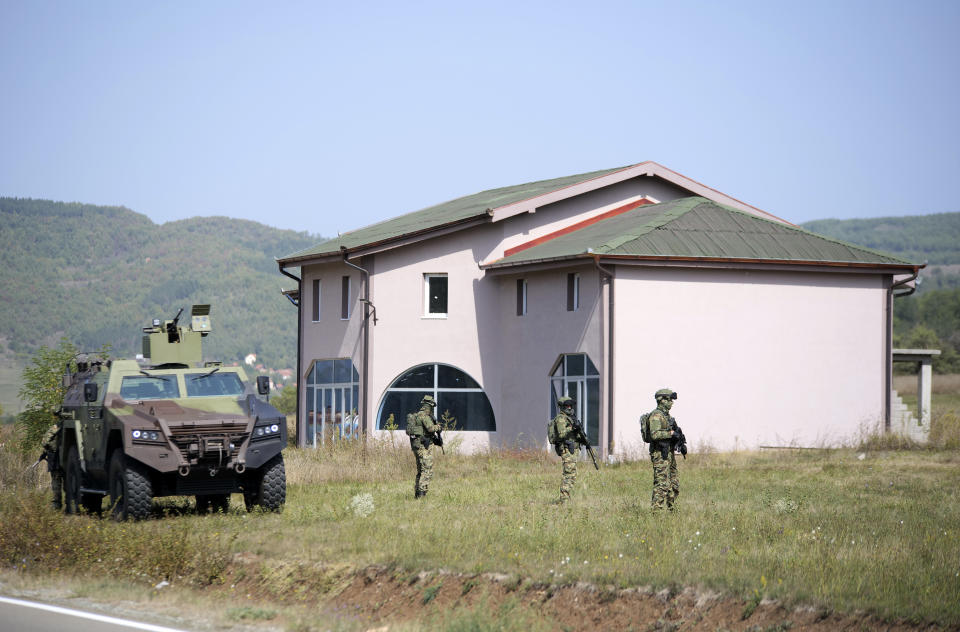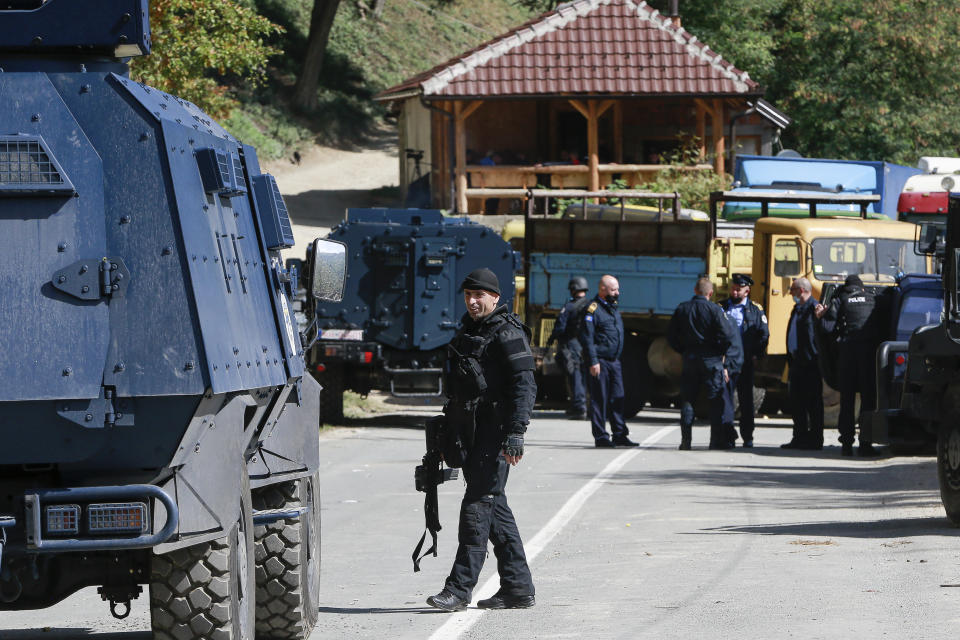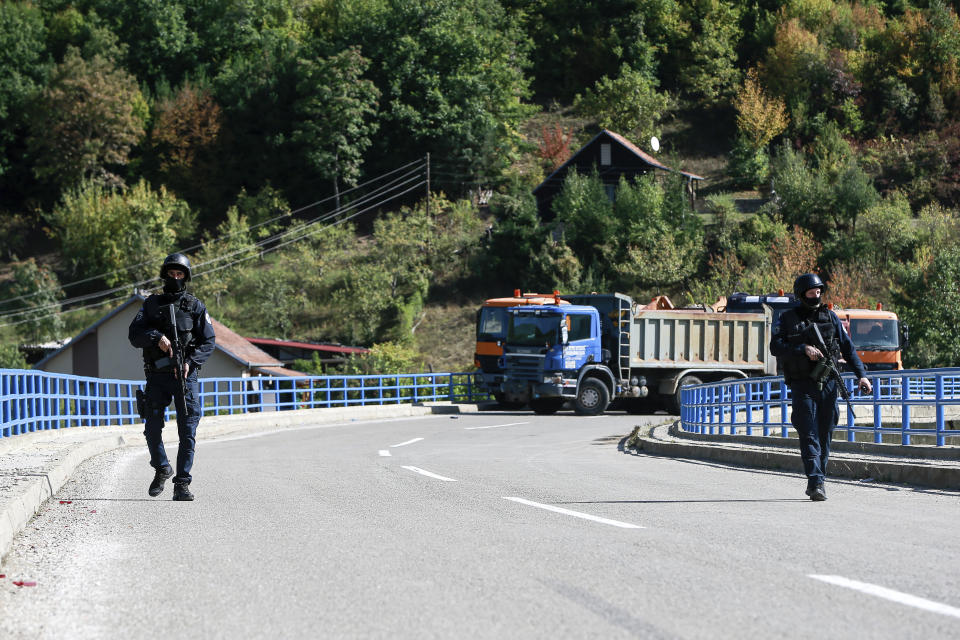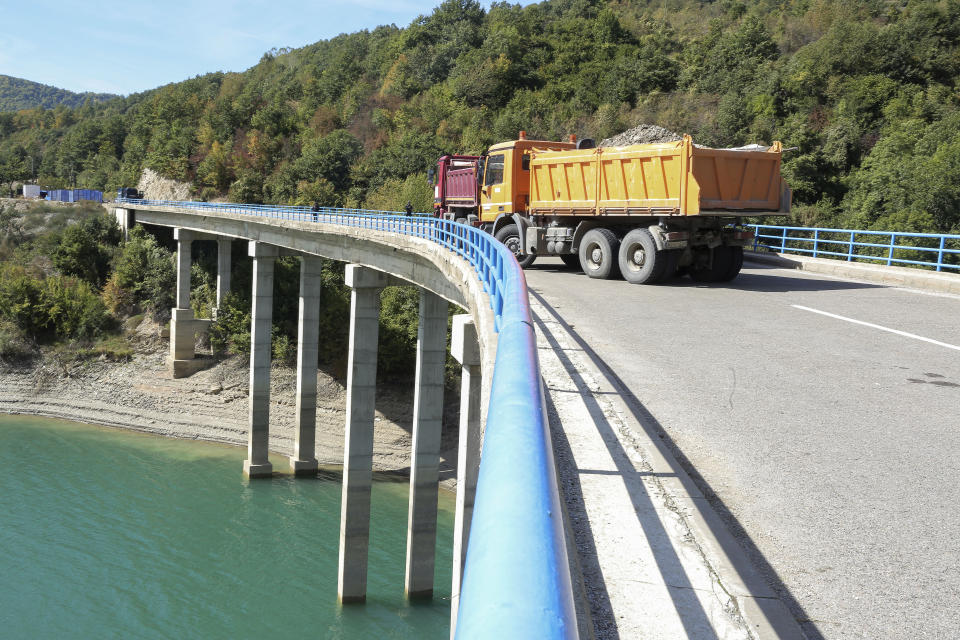NATO-led mission increases patrols on Kosovo-Serbia border
PRISTINA, Kosovo (AP) — The NATO-led KFOR mission in Kosovo on Monday increased its patrols on the border with Serbia in a bid to deescalate tensions between the two Balkan foes over a dispute about license plates.
“KFOR has increased the number and time length of the routine patrolling all around Kosovo, including northern Kosovo,” the force said in a statement.
The U.S. Embassy in Serbia tweeted that American and Canadian defense officials had visited the Jarinje and Brnjak border crossings “to gain a better understanding of the situation.”
“They were glad to note KFOR was on site as a stabilizing factor,” the U.S. Embassy tweeted.
KFOR, with around 4,000 troops from 28 countries, is led by NATO but is supported by the United Nations, the European Union and other international actors. Its aim is to stave off lingering ethnic tensions between majority Kosovo Albanians and minority Kosovo Serbs.
The move comes a day after Serbia President Aleksandar Vucic warned NATO that Serbia will intervene in Kosovo if Kosovo Serbs come under serious threat from the majority Kosovo Albanians.
Serbia has raised its military alert last week, and Serbian military jets and helicopters were flying close to the border with Kosovo in an apparent show of force.
A week ago after Kosovo government’s decision, ethnic Kosovo Serbs blocked the Kosovo-Serbia border with trucks to protest the rule on replacing the number plate of the vehicles with a temporary one when entering the country, paying five euros for a two-month period.
Kosovo sent in special police to protect the country's border officers and their installations while implementing the new rule, according to Prime Minister Albin Kurti. Kosovo authorities say they were matching Serbia in a license plate move that heightens tensions in the Balkans. Kosovo says a 10-year-old deal achieved during the European Union-facilitated negotiations between the two countries expired Sept. 15 and it was applying the same rule Serbia used for vehicles entering into their country from Kosovo.
Serbia doesn’t recognize its former province of Kosovo as a separate nation and considers their mutual border only as a temporary boundary.
Last weekend, Kosovo government officials say a public building was set on fire and another was hit by grenades that didn’t explode in what they described as criminal acts related to a protest by ethnic Serbs.
On Monday, Kurti repeated the offer that both countries lift the rule of temporary license plates as the solution. He also said they were open to talks in Brussels, but Belgrade was declining to hold them.
Vucic has described Kosovo’s recent license plate move as a “criminal action,” and he made the withdrawal of all Kosovar special police a condition of EU-mediated negotiations to resolve the dispute.
The EU, NATO and the U.S. have urged Kosovo and Serbia to immediately exercise restraint and refrain from unilateral actions.
A bloody 1998-1999 crackdown by Serbian troops against Kosovo Albanian separatists ended after NATO intervention, and Kosovo declared independence in 2008. It has been recognized by the U.S. and other Western nations, but not by Serbia and its allies Russia and China.
___
Llazar Semini reported from Tirana, Albania. Dusan Stojanovic contributed to this report from Belgrade, Serbia.





